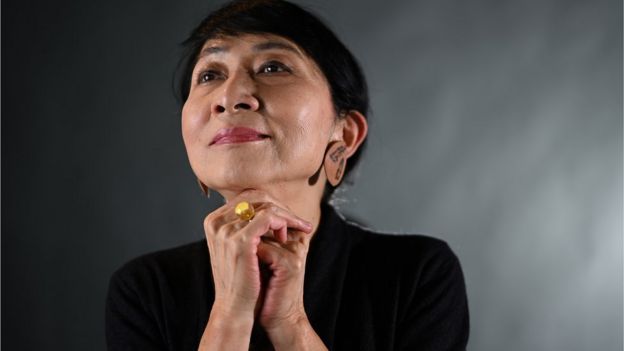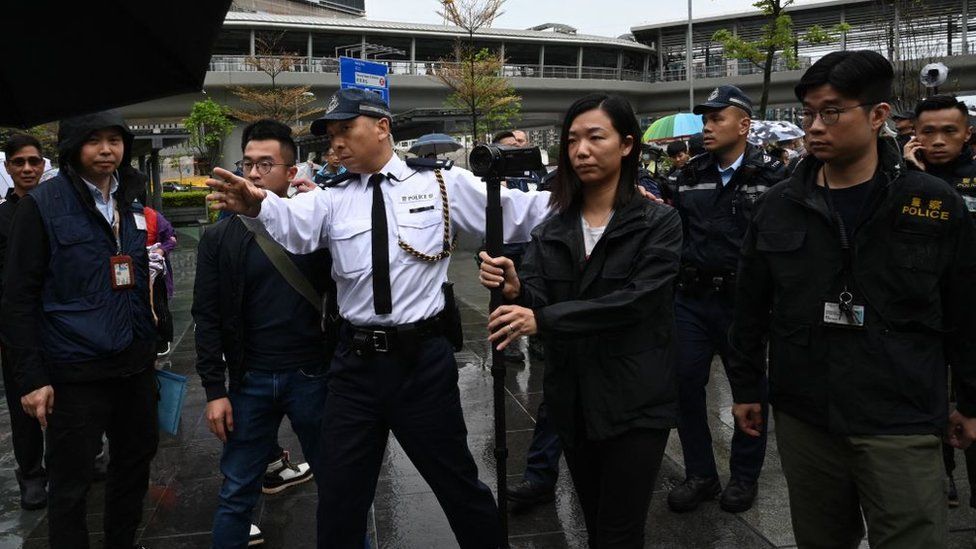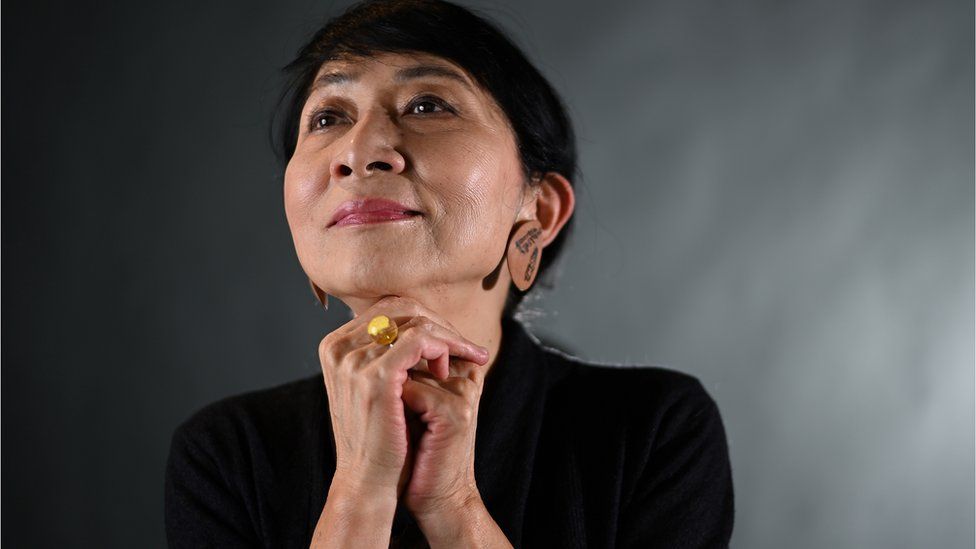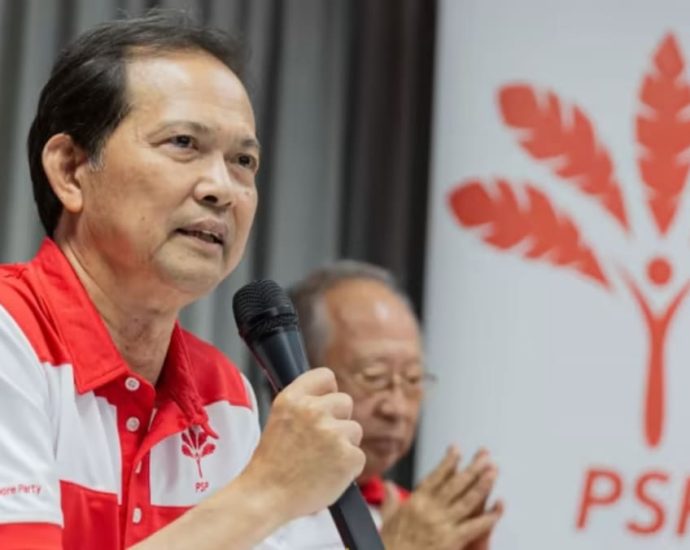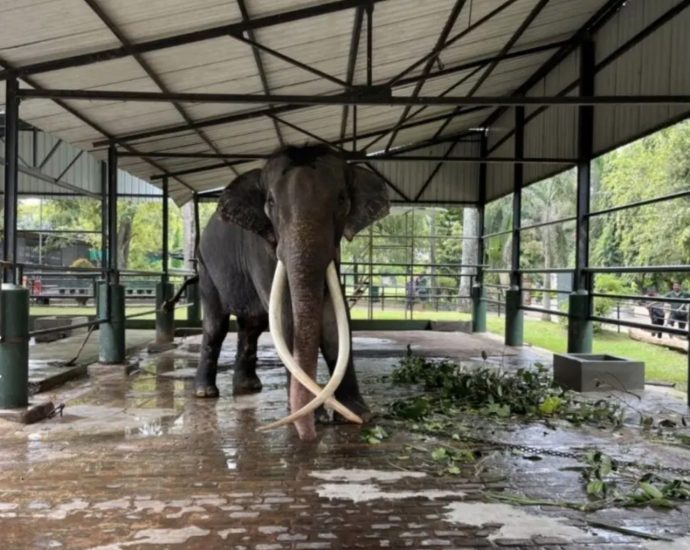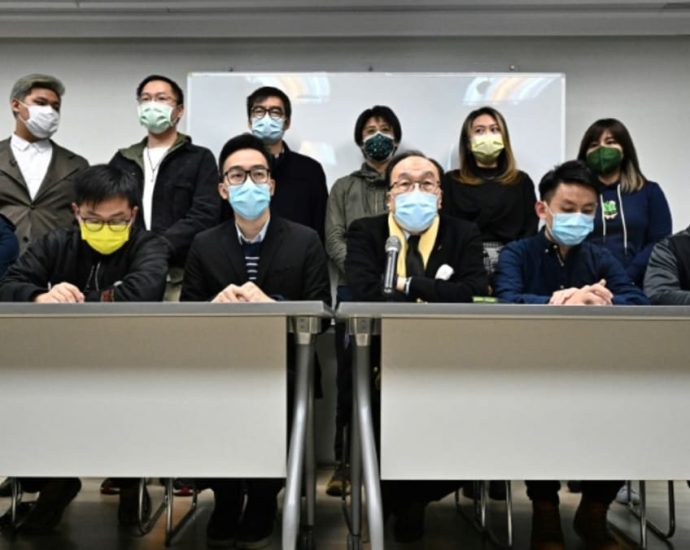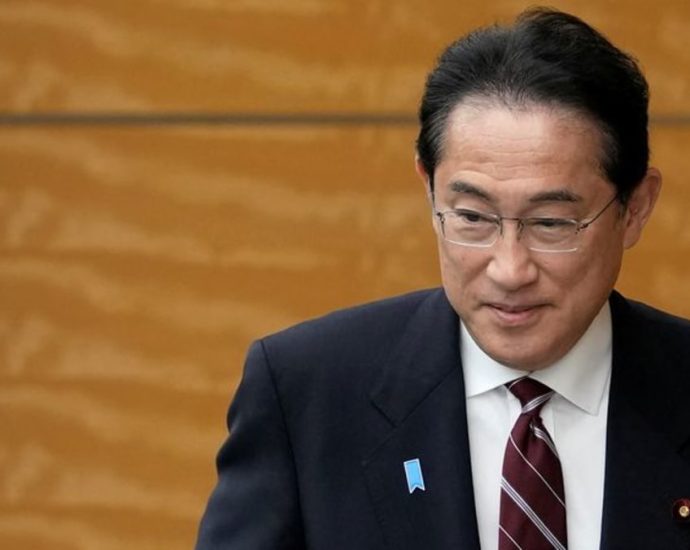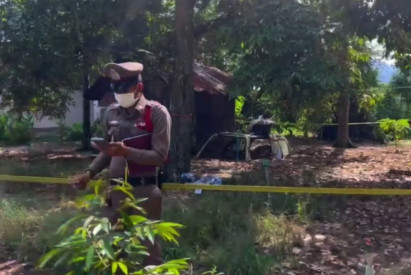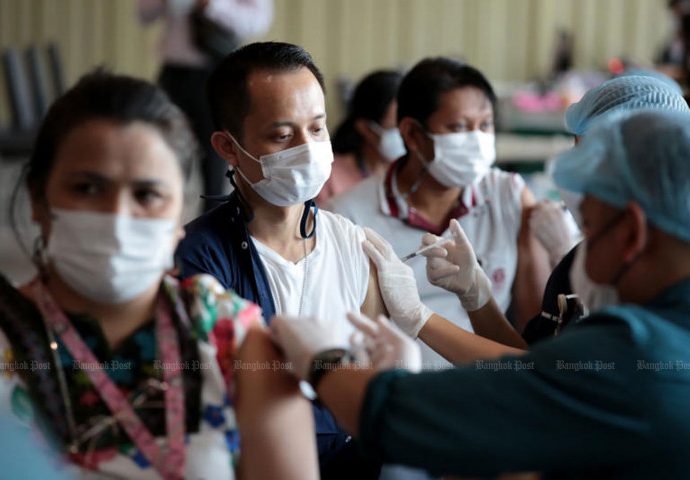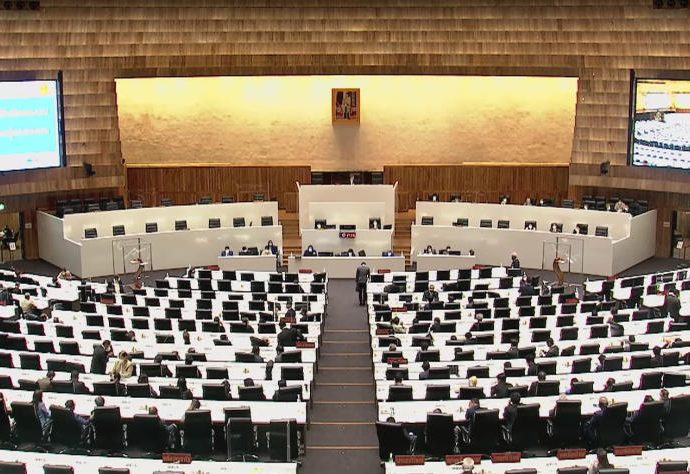Volatility expected as debt ceiling negotiations intensify

Investment strategy: How to trade the 14th Amendment?
David Woo writes that markets have largely disregarded the debt ceiling negotiation as a major risk due to the growth of passive investing and a lack of urgency from negotiators. However, concerns are rising over whether the positive talk is a mere show, and there is speculation that President Biden may invoke the 14th amendment if a deal cannot be reached.
Global Uncertainty Index Remains at Zero Line
David Goldman assesses how declining foreign deposits at US banks, signalling a global squeeze on dollar credit, could potentially lead to increased volatility and a shift towards alternative currencies in international trade, further impacting America’s economic position.
Russians strategize offensive options after the fall of Bakhmut
James Davis details how the war in Ukraine has entered a phase of increased uncertainty as neither side has a defined strategy. Both sides are regrouping after the Wagner group’s capture of Bakhmut, where Ukrainian troops suffered significant losses in morale and resources, with Russia now considering various offensive options.
China declares Micron a cyber threat while the long-term outlook favors Korean chipmakers
Scott Foster delves into China’s move to ban the use of Micron’s memory chips due to concerns over national security, which is seen as retaliation against US sanctions and is expected to lead to tougher sanctions on the Chinese semiconductor industry, favoring Korean competitors like Samsung and SK Hynix.
Civic Party: Key Hong Kong pro-democracy group votes to disband
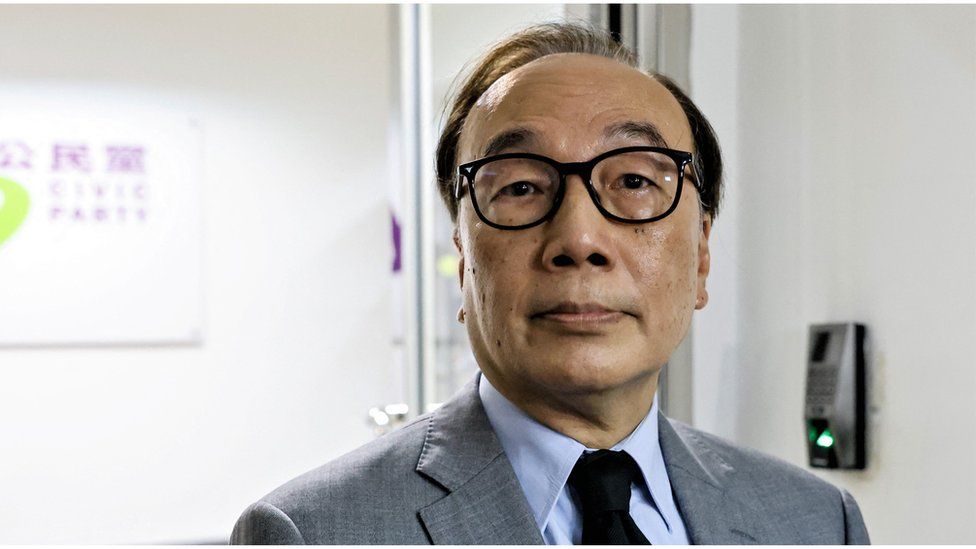 Reuters
ReutersOne of Hong Kong’s biggest pro-democracy groups, the Civic Party, has voted to disband following a crackdown on dissent by China.
Founded in 2006, it was once the second-largest opposition party in the city’s Legislative Council.
But several of its key members were arrested or fled into exile in recent years.
One of its founders said the party’s end was “a symbol of the end of Hong Kong’s nativistic democracy movement”.
Speaking to the AFP news agency, Albert Lai said “the failure does not mean the movement was meaningless.”
The party announced plans to dissolve in December after it failed to form a new executive committee.
At the time, chairman Alan Leong told the Hong Kong Free Press he was not surprised nobody wanted to lead the party as there had been no suggestions about how to keep it going at an internal member in September.
On Saturday, Mr Leong said all members had voted to disband the party, with one person abstaining.
“After going through the last procedure, the Civic Party will disappear from the Earth,” he said.
In a statement, Mr Leong thanked “all like-minded people” who had joined the party on its “long walk to democracy” and said that while it had “not accomplished what we set out to do, there is a time for everything”.
The Civic Party was known for representing professionals including lawyers and accountants and was seen as a more moderate alternative to the larger Democratic Party, which is still running.
Several members have faced prosecution for taking part in the pro-democracy protests against Beijing’s control, which began in 2019.
Following the introduction of the controversial national security law, four of its lawmakers were ousted from the Legislative Council in 2020, accused of being “unpatriotic”.
This triggered mass resignations from other opposition politicians in protest.
Some members also took part in unofficial political elections and were charged with conspiracy to subversion. They went on trial with more than 40 others in February.
Following an overhaul of Hong Kong’s electoral system that meant only “patriots” could hold public office, the party lost dozens of spots on district councils.
Hong Kong is a Special Administrative Region of China. Under its “one country, two systems” principle, residents are supposed to enjoy certain freedoms unavailable on the mainland – and Hong Kong’s mini-constitution, the Basic Law, guarantees the right to public assembly.
But these rights have, critics say, been eroded since 2020, when Beijing imposed a national security law in response to widespread pro-democracy protests.
Beijing said the law was needed to bring stability to the city – but critics believe it was designed to squash dissent and weaken Hong Kong’s autonomy.
-
-
30 July 2020
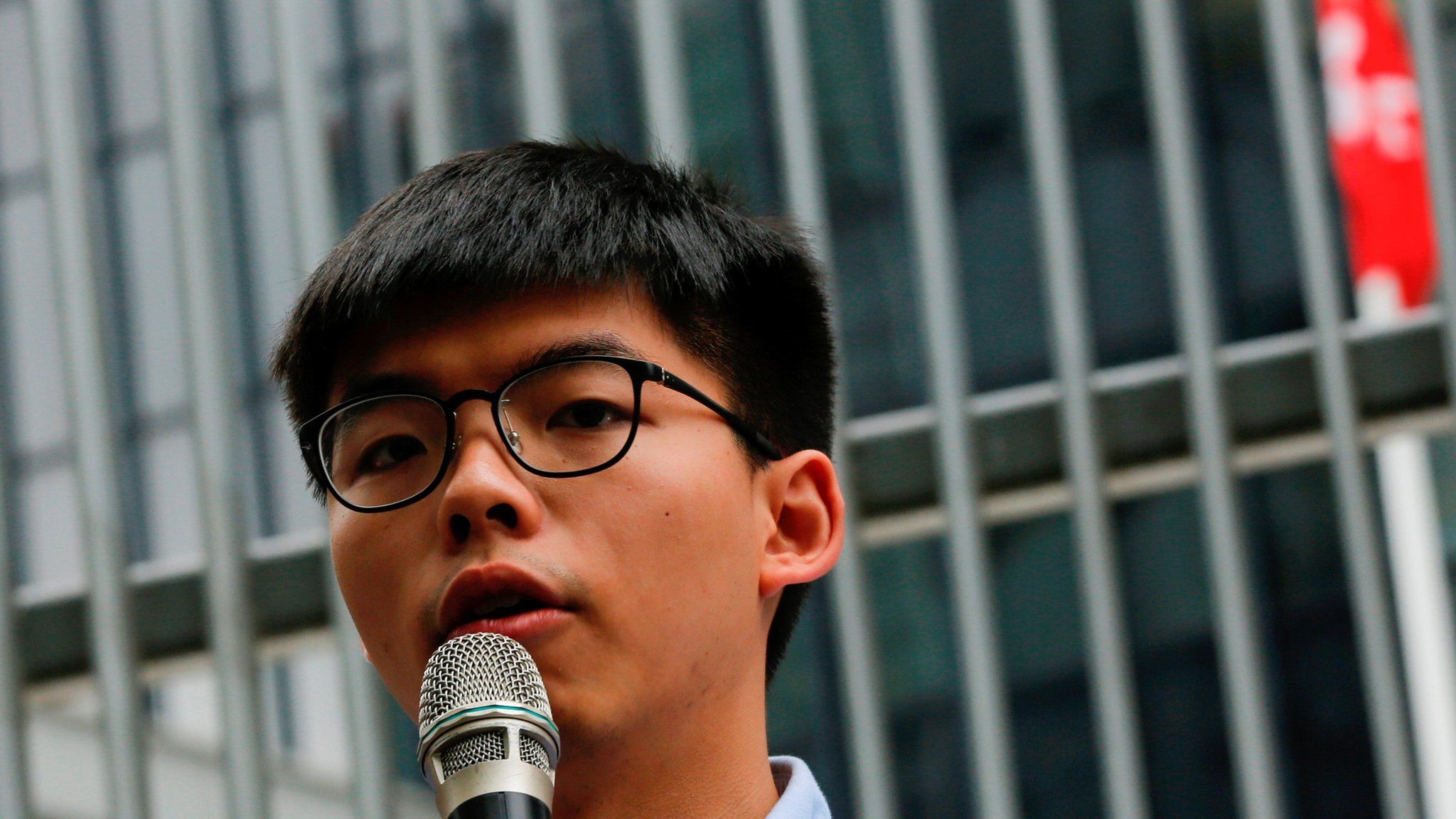
-
New PSP chief Leong Mun Wai defends ‘confrontational’ style, says party focusing on building support for next GE
SINGAPORE: In response to political analysts calling his parliamentary style “confrontational”, Non-Constituency Member of Parliament (NCMP) Leong Mun Wai said that he is only trying his best to seek responses to questions he thinks has not been answered in Parliament. That said, Mr Leong acknowledged that there were parliamentary procedures that heContinue Reading
Ailing jumbo Sak Surin to be brought home
Vets and experts to visit Sri Lanka next month to make preparations for journey

A team of veterinarians and experts will be sent to Sri Lanka next month to prepare for the return of Sak Surin, an ailing and ageing Thai elephant, to Thailand for medical treatment and physical rehabilitation.
The team, which will visit from June 6-9, will be responsible for the elephant’s health to make sure it is ready for the journey home. sadi Jatuporn Burutphat, permanent secretary for the Ministry of Natural Resources and Environment.
He said the Department of National Parks, Wildlife and Plant Conservation (DNP) would work on issues including paperwork to comply with the Convention on International Trade in Endangered Species of Wild Fauna and Flora (Cites), and build a special enclosure for moving Sak Surin.
He said the elephant would be flown back on an Ilyushin IL-76 plane from Colombo to Chiang Mai airport, and then moved to an elephant hospital in Lampang.
The ministry has been working on a plan to bring home Sak Surin, originally gifted to Sri Lanka in 2001 as a goodwill ambassador but then moved on multiple times, after an animal rights organisation reported last year that the pachyderm had been mistreated by its new handlers.
Sri Lanka-based Rally for Animal Rights and Environment (Rare) said the elephant’s limbs had been restrained with chains that caused injuries all over its body.
Hong Kong’s prominent pro-democracy Civic Party to disband
HONG KONG: The Civic Party, one of Hong Kong’s most prominent pro-democracy groups, voted Saturday (May 27) to disband due to a leadership vacuum, after its members were squeezed out of local councils and charged under Beijing’s national security law. Nicknamed “the barristers’ party”, it was founded in 2006 byContinue Reading
Japan PM Kishida says willing to meet Kim Jong Un over kidnappings
TOKYO: Japanese Prime Minister Fumio Kishida said on Saturday (May 27) he was willing to meet North Korean leader Kim Jong Un to try and resolve the issue of Japanese nationals abducted in the 1960s and 1970s, media reported. “I am determined to face Kim Jong Un directly myself, withoutContinue Reading
Search and rescue team unable to find missing Singaporean on Mt Everest, says wife
SINGAPORE: The search and rescue team looking for the missing Singaporean climber on Mount Everest were unable to locate him “despite their best efforts”, said his wife on social media on Saturday (May 27). In an Instagram post, the wife of Mr Shrinivas Sainis Dattatraya wrote a tribute to the 39-year-old climberContinue Reading
Ex-drug convict kills mother’s suitor, hides body
Mother says she sometimes had to hide with relatives because of son’s behaviour
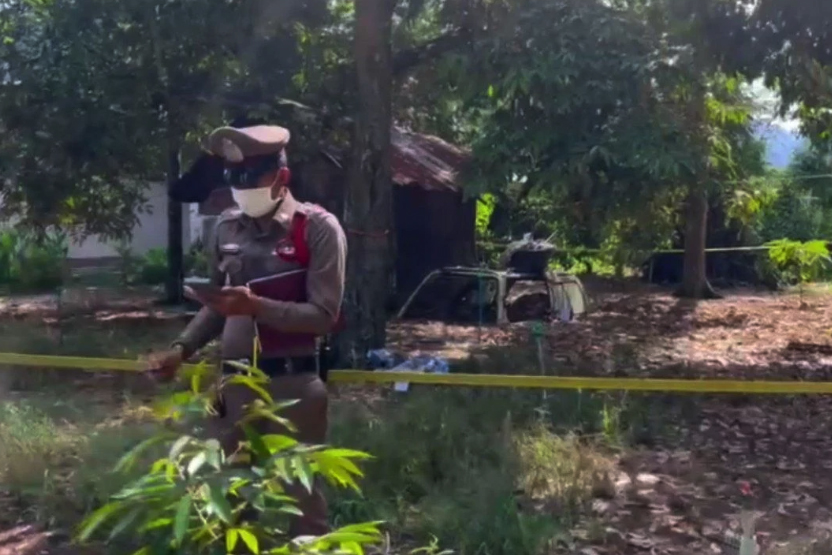
SURAT THANI: A 36-year-old man has been detained on suspicion of murdering a man whom he believed was wooing his recently widowed mother, and then attempting to hide the body.
Police and rescue workers responded to a reported murder at a single-storey concrete house in Wiang Sa district on Saturday morning. When they arrived their attention was directed to a pickup truck cap discarded in the yard.
Beneath the structure, they discovered the body of 47-year-old Sayan Lathawanit. It was wrapped in a bloodstained sack, and there was a significant head wound.
Officers arrested the suspect, identified only as Suriyong, at the scene.
According to investigators, Mr Suriyong was unhappy about Sayan’s relationship with his mother and his frequent visits to their home. He waited for the man next to an outdoor bathroom and attacked him with an axe before trying to conceal the body.
Local residents eventually found the body and alerted the authorities.
Mr Suriyong’s aunt, whose name was withheld, told police that her nephew had recently been under the influence of hallucinogenic drugs and misunderstood that the victim was flirting with his mother, whose husband died on May 1.
According to the suspect’s mother, Mr Suriyong had been detained 14 times for drug use. In January he was released from prison after serving a four-year sentence for drug offences. She said she and her daughter had to seek refuge at their relatives’ house at times because her son’s behaviour frightened them.
During questioning, the suspect confessed to the crimes and will face legal action, police said.
Siriraj Piyamaharajkarun Hospital says all Covid beds full
Bangkok governor says rising infections in capital worrying but bed situation not yet critical
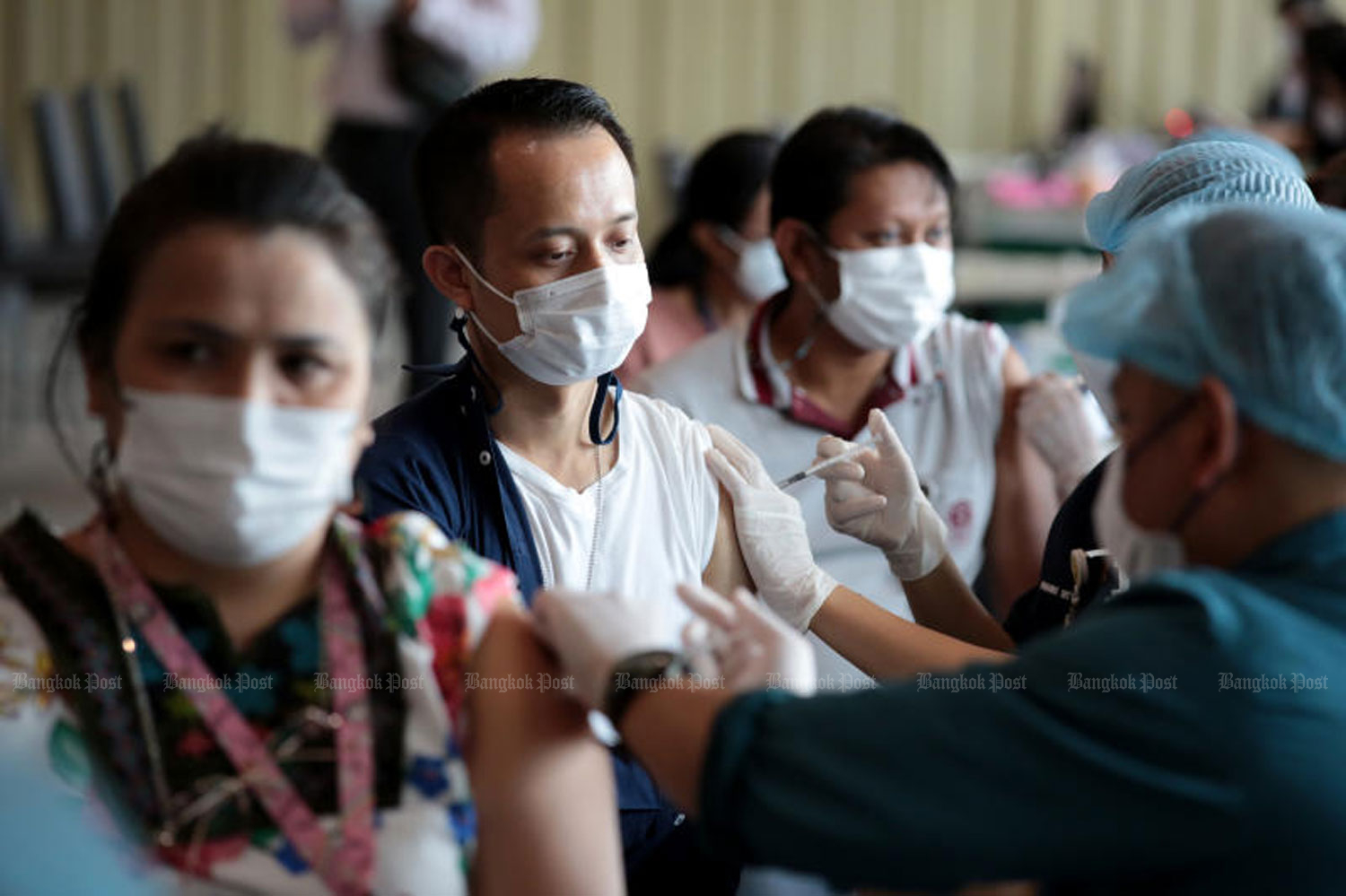
Siriraj Piyamaharajkarun Hospital has announced that it cannot accept any more Covid-19 patients because all beds for critical coronavirus patients are fully occupied.
Bangkok governor Chadchart Sittipunt acknowledged on Saturday that the bed situation for Covid patients was worrying but not yet critical, amid rising infections in the capital.
“Beds for Covid-19 patients at all rooms in the intensive care unit (ICU) and inpatient department (IPD) are fully occupied,” Siriraj Piyamarajkarun Hospital said on its Facebook page on Saturday.
“As well, the emergency department also has Covid-19 patients who are awaiting referral. Thus, the hospital cannot accommodate more Covid-19 patients. We apologise for this inconvenience.”
The 345-bed hospital is the private offshoot of the adjacent Siriraj Hospital, the country’s best-known public hospital, located on the west bank of the Chao Phraya River.
Dr Nitipatana Chierakul, head of the respiratory disease and tuberculosis division at Siriraj Hospital, said a new wave of Covid infections has hit the country since April with the number of daily cases surging.
Earlier, health officials predicted that infections would drop after the Songkran festival.
During the general election earlier this month, many people returned to their home provinces to cast ballots and tourist arrivals continued to rise. This caused the number of Covid cases to keep rising, he said.
Up until early April, about 20 Covid patients a day were seeking treatment at Siriraj Hospital. Lately, the figure has risen to around 400 a day, he noted.
It is estimated that only about 2% of every 100 infected patients receive treatment at a hospital.
Nationwide, the number of Covid patients admitted to hospital averaged 2,632 per day in the period from May 14-20, according to the Department of Disease Control at the Ministry of Public Health.
Mr Chadchart, meanwhile, said the surge in Covid infections was worrying. Data from hospitals under the Bangkok Metropolitan Administration showed a daily average of 1,300 to 1,500 infected people seeking treatment. The real infection numbers may be higher by 2-3 times, he said.
About 2-3% of infected patients had serious symptoms, particularly those who had underlying diseases and the elderly, he said.
“Now, about 70% of hospital beds are occupied by Covid-19 patients. The bed situation is not yet at a critical level,” said the governor.
Tuesday talks could help clarify Speaker issue
Eight coalition parties to jointly discuss way forward, while former speakers say age is irrelevant
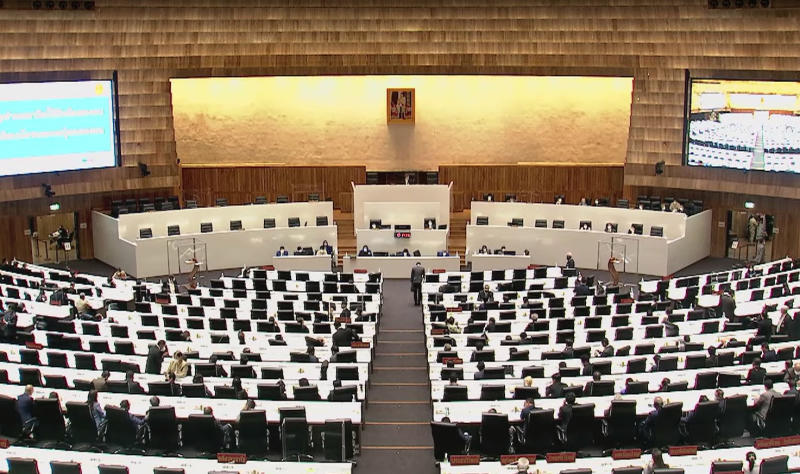
The eight-party alliance led by the Move Forward Party (MFP) hopes to have a clearer idea about the selection of the House Speaker after a meeting on Tuesday, according to MFP deputy leader Natthawut Buapratum.
The talks on Tuesday will take place at the Prachachart Party headquarters, he said on Saturday.
The meeting will focus on the future direction and collaborative work plan for the coalition, in line with the memorandum of understanding that the members signed on May 22.
Disagreements over the selection of a speaker have dominated the headlines this week. Move Forward, which topped the polls in the May 14 election, wants the post to ensure that its ambitious legislative agenda can get passed. Second-ranked Pheu Thai maintains that it should have the position.
Some Pheu Thai supporters have even said the party should walk away if it does not get its wish, which would sink the coalition.
Move Forward leader and prime ministerial candidate Pita Limjaroenrat on Friday said he was confident the issue could be resolved through negotiations involving all eight parties. He issued a call for unity, saying any disagreements the allies have are “a trivial matter compared to the task entrusted to us by the people”.
Mr Natthawut, meanwhile, dismissed rumours that he was being considered for the position, saying no internal discussions regarding the matter have taken place within the party.
He added that the selection of the House Speaker would be determined through negotiations involving all parties, and a consensus is necessary.
Meanwhile, former deputy House speaker Somsak Prissanananthakul expressed his view that Move Forward deserves to lead the lower House, considering its election victory and qualifications.
Mr Somsak also questioned whether Pheu Thai, if it had won the most seats in the election, would have granted the House Speaker’s position to another party.
In response to comments suggesting that Move Forward members are too young and inexperienced for the role, Mr Somsak, 72, said the position requires intelligence and wit, with age being irrelevant.
However, he acknowledged that a vote in Parliament would likely favour the long-standing Pheu Thai Party.
Former speaker Uthai Pimchaichon also shared his perspective, highlighting that traditionally, the House speaker has been a member of the ruling party to help drive policies.
He emphasised that the speaker should act as a conductor of the House of Representatives, effectively guiding necessary proceedings and maintaining order on the floor.
When asked about the relative inexperience of MFP members, he noted that he himself had served as a member of Parliament for only two years before being entrusted with the speaker’s responsibility.


